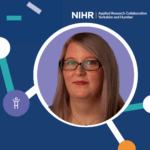One quarter of five-year-old children in England have tooth decay. This can be up to 50% in poorer areas. Tooth decay seriously impacts children’s lives and school attendance, also costing the National Health Service (NHS) over £50 million per year on hospital treatments.
A key way to prevent decay is by brushing with fluoride toothpaste. To promote good brushing habits, the government recommends nursery and early school programs with supervised brushing. These programs are effective at reducing tooth decay, especially for at-risk children, and are cost effective. However, there is considerable variation in how well they are implemented. This project involves national/local governments, schools, parents and children to learn how best to set up these supervised brushing programs and increase their success long-term. A toolkit has been developed to optimize implementation of such toothbrushing programs across England: https://www.supervisedtoothbrushing.com/
